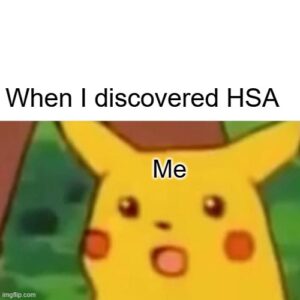Key takeaways
- Understand Real Banks: Real banks are regulated and insured, offering true security for your money.
- Watch Out for Non-Bank Platforms: They may offer high yields and no fees, but they lack the security and transparency of real banks.
- Do Your Research: Real banks, like credit unions and online banks, can offer great features. Always research before deciding where to keep your money.
Your account might not be managed by a real bank.
I was shocked after listening to this Planet Money episode: The Hidden World Behind Your New Banking App.
There are companies that act like a bank, even look and feel like a bank. They offer checking and savings accounts with attractive features like no monthly fees or no minimum balance requirements. But, they’re actually not real banks.
What Is a “Real” Bank Account?
Here are my three takeaways from the episode:
- Regulation and Protection:
A real bank is strictly regulated by law, meaning it has to follow rules that protect account holders. A non-real bank is less regulated or not regulated at all. Without this legal protection, your money isn’t truly insured. - Holding Your Money:
A real bank is legally allowed to hold your deposits. A non-real bank, however, relies on a third party to hold your money with a real bank. This adds risk, as things could go wrong during transactions. - The Use of “Bank” in Their Name:
Legally, only a real bank can use the word “bank” in its title. Financial platforms (non-real banks) can’t technically use this term, so pay close attention to the fine print (the tiny texts🔍). It helps you avoid falling into traps.

Why Is It Important to Have a Real Bank Account?
You might understand the risks of non-real banks, but what about the value a real bank account provides?
A bank account provides security to protect your money.
Imagine banknotes in your wallet—they could get stolen or damaged, and there’s no way to prove ownership. Even hiding cash under a pillow might not keep it safe from a sneaky sibling! 😆
The real value of a bank account is its security. It prevents your money from physical damage and clearly defines ownership, so no one can take it without your permission. Plus, with FDIC insurance, your savings are protected. If something goes wrong with your bank, the government-backed insurance has you covered.
Too Good to Be True? High-Yield Accounts, No Fees, and No Minimum Balances
The financial service platforms may seem appealing, but they don’t offer the same security that comes with a real bank. Instead, they rely on some tricks to get you to save for their profit:
- A user-friendly interface.
- Gamified savings themes to push you to save more. “Your goal is set. Add more money to reach your goal.”
- Unlimited transfers.
- No minimum balance required to earn that 5% interest.
- FDIC insured through partner banks.
It’s true, you can enjoy some perks when things go smoothly, but is it worth the trade-off for an unsecured system? I believe you can make a smart judgment call. 😏
My Bank Accounts: Credit Unions, Online Banks, and High-Yield Savings Accounts (HYSA)
Interestingly, I’ve found that these benefits are often offered by real banks as well.
There are three types of bank accounts: brick-and-mortar banks, online banks, and credit unions. I’ve used them all.
I used to bank with traditional brick-and-mortar banks, but I stopped because they charged service fees if I didn’t maintain a minimum balance. The only real advantage was access to physical ATMs, which I no longer need since I found banks that offer ATM rebates. Now, I stick with online banks and credit unions. Here are my current favorites:
| Product | Why I sign up |
|---|---|
| Alliant Credit Union Checking & Savings | No overdraft fee, no monthly fee, internal ATM rebate. |
| Cit Bank Platinum Savings | High interest rate |
| Charles Schwab Investor Checking | Unlimited international ATM rebate. |
Disclaimer: I have no affiliations with these banks (though I wish I did! 😂).
Additional reading: high yield savings accounts & emergency funds
Remember, this is just my two cents. Always do your own research before signing up with a bank.



